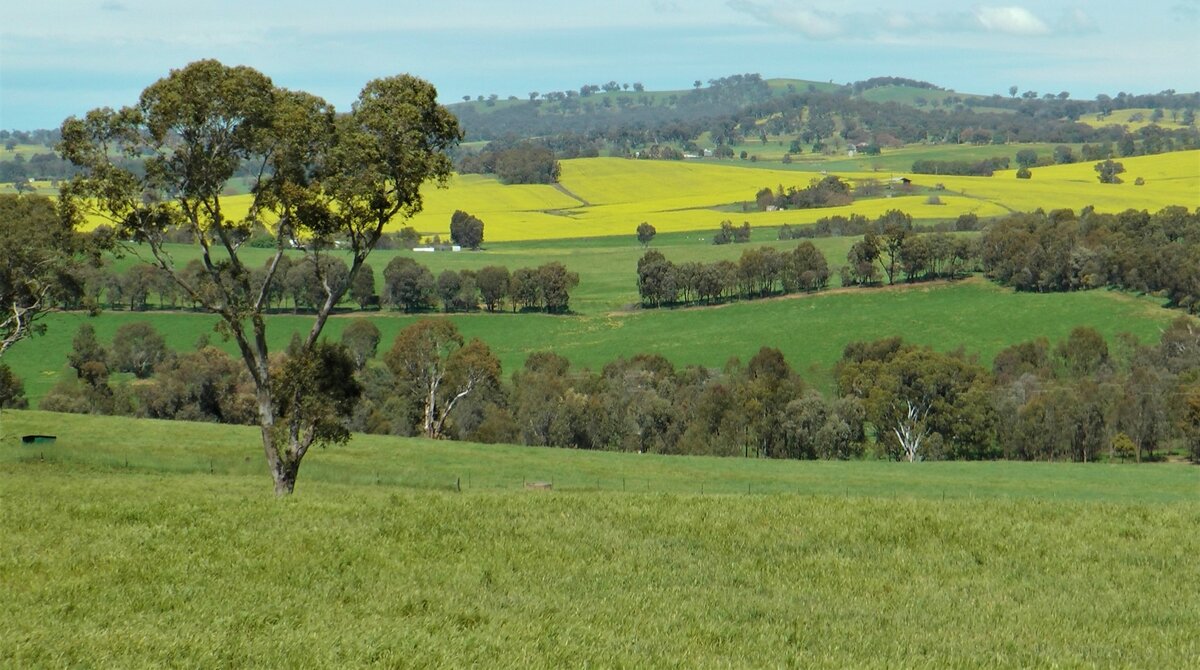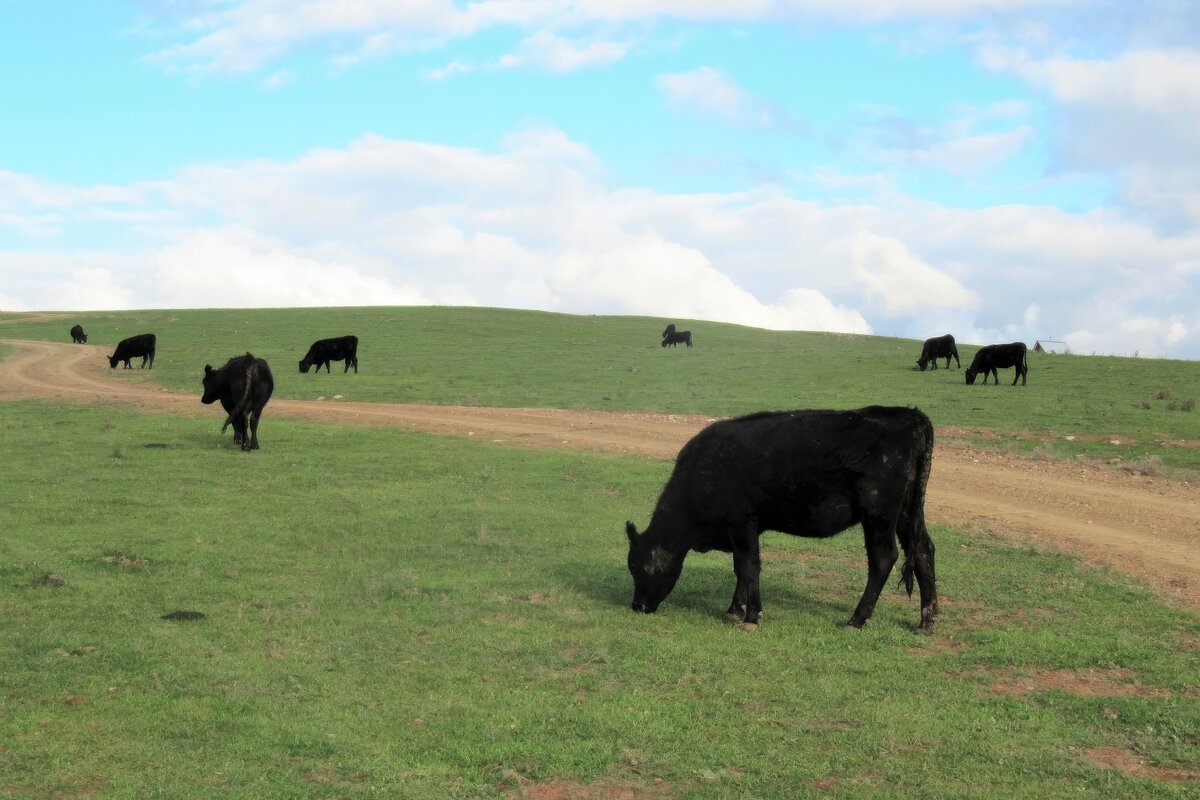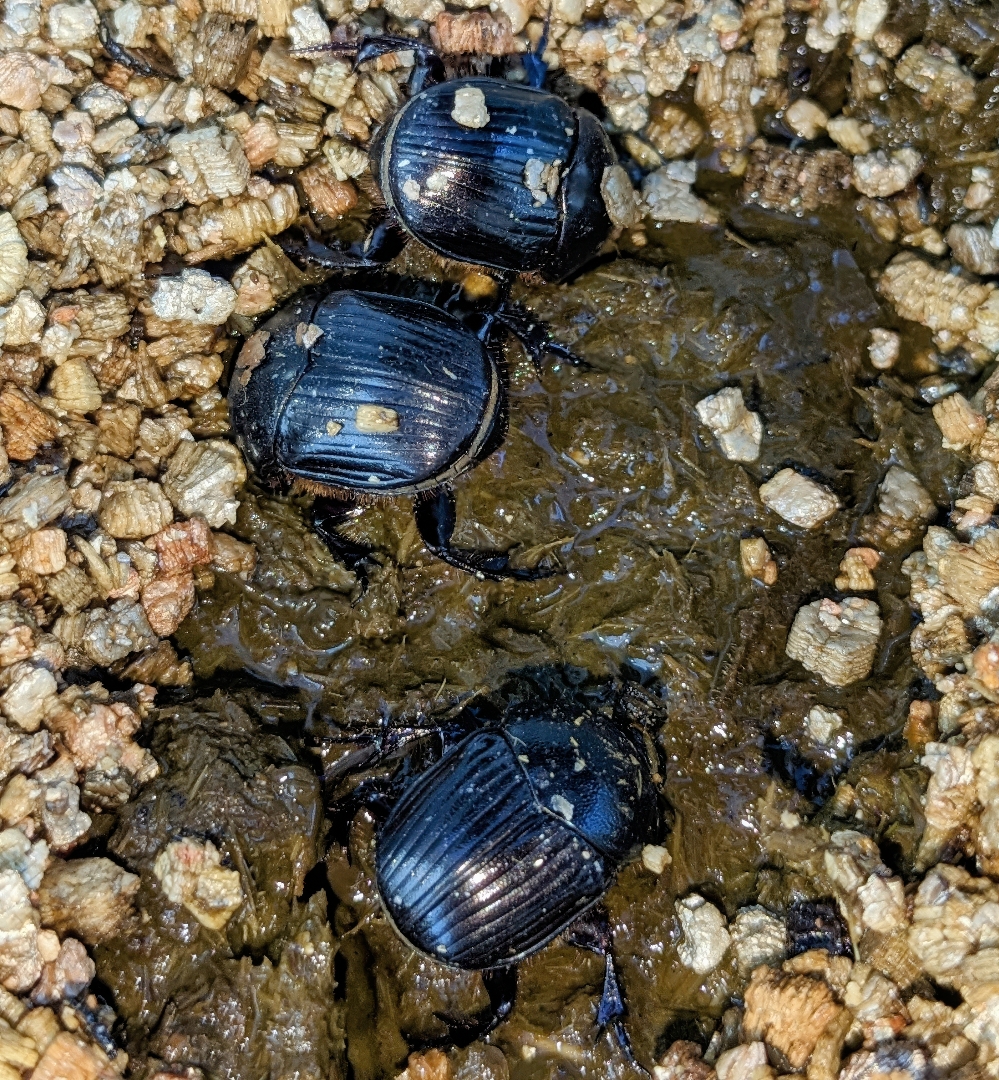Evolved to process the dung of animals, established dung beetles work efficiently to break down livestock faeces.

Economic Benefits
Burying dung into the soil, these beetles improve water flow, and provide essential nutrients and carbon into the root zones of pasture land, enhancing the quality of grazing lands.
By processing dung, these beetles prevent the buildup of flies and parasites which in turn improves animal productivity and lifestyle conditions for graziers and surrounding communities.
Research has shown farmland with introduced dung beetles has shown an increased pasture growth response by 27% over two years.
Ecological Benefits
Australian livestock (mainly cattle and sheep) produce approximately 300 million tonnes of dung every year! By processing livestock dung, dung beetles enhance pasture quality, reduce pollution, increase soil porosity, sequester carbon, reduce emissions, and inhibit pest numbers.
Incorporating dung beetles into your pastures can enhance your property’s sustainable productivity.


Biosecurity Benefits
Competing with flies for fresh faeces; dung beetles help keep pest numbers down by breaking down dung in as little as a day or two.
Dung from animals affected with gastrointestinal parasites is packed with worm eggs and the larvae that hatch, develop and migrate onto pasture plants, where they are consumed and the cycle repeated.
By being able to quickly process the dung, the beetles can help inhibit parasite numbers by making conditions within the dung less favourable for worm larvae growth, reducing the risk of livestock infection.



